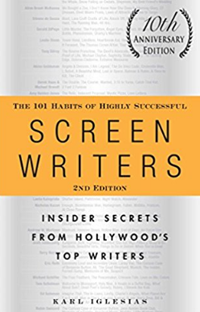
Monique Amado – Writer, Actor, Singer-Songwriter
One of my goals for 2017 was to make my short script Someone Understands into an actual film. What I didn’t realize or expect was that I would be directing it. Till now, I’ve been a writer, actor, singer-songwriter, dancer, but never yet a director. It wasn’t even in my consciousness to direct.

What inspired the script was, I think, basic observation and compassion. It seems more obvious, living in a big city, how overlooked certain people are (the elderly, the homeless, those with disabilities). I see the rush of the world go past–on streets, at train stations, in parks–and those who are not part of the rush and whirl, seem left behind, stepped over or around, and mostly ignored. But what about these people’s lives–their memories, their histories, their losses, their pains, their loneliness?

I would often see elderly people pass each other on the sidewalk. More often than not, they wouldn’t look at each other, and if they did, it was only for a brief moment. I imagined a moment between two elderly women with walkers, both looking down as they walked, slowly looking up and realizing that they aren’t alone.
I’ve always been inspired by Pixar, especially how much they are able to convey without dialogue (especially in their shorts, or the opening scenes in Up and most of Wall E) and how much empathy it’s possible to stir simply with images. I didn’t really set out to make a silent film, I just love how much our eyes and faces can speak without the need for words.
I had written the script years ago, and last year when joined Berlin Independent Film Community, I was blessed that so many people quickly got involved in making this film. I didn’t realize I would be directing it, but Klaus Salminen, the leader of the community, nudged me to. And so, having never directed (apart from coaching child acting students), we were off and running.
It was a reminder that, like MLK said, “Faith is taking the first step even when you don’t see the whole staircase.” I stepped out and a whole bunch of people and resources stepped towards me, each showing up just when needed and going above and beyond what was expected. And this was on no budget. It’s incredible what happens when people are passionate about what they do.

Some things I learned in the process and what I have noted to myself for future projects are:
-
Find a producer. One thing I didn’t realize going in was how much work the film would entail that had nothing to do with directing actors on set, or looking at the scenes in the editing stage. In other words: emails, coordinating things, finding people, making phone calls, scheduling… it was overwhelming, especially all the emails. Thankfully cast and crew helped out with many aspects from location scouting to props to casting. And someone amazing came along to take care of all of this and more (the inimitable Lucy Sky!), but until she did, it was highly stressful.
-
No matter how much you want to get started, hold auditions. It’s great to have people happy to get involved, but you want to really take the time to find the best fit for the characters and the project.

-
Find people who will stay committed until the project is finished. It’s lovely when people are willing to give their time and resources to work with you, but it also puts you at their mercy in terms of getting things done. If there’s a way to pay people, pay something. If not, patience is a virtue.
-
Don’t take it personally when people get cranky with you. Especially not if this is your first time doing this and you’re just getting your bearings. Everyone has an opinion. You can consider everyone’s opinions, but it doesn’t mean you have to take every one of them on board.
-
On the other hand, if someone is becoming a problem, do not hesitate to remove them from the project. People who try to overstep you, take over, or are otherwise bringing bad vibes–you don’t need it. Let them go. Drama is for on camera, not off.
-
Find a DP (Director of Photography) who gets your vision. I was very fortunate in this from the beginning with a wonderful DP, Alex DePew, who got it and did everything he could to bring it to life.
-
Find a music composer who can convey emotion with sound and who is not afraid to go to the deep places to pull those emotions out. Again, I was very fortunate to find Federico Coderoni for our film.
Set deadlines. Otherwise it can go on and on for months with no clear end in sight. This will also help your cast and crew know that there is an end in sight, especially those who are anxious to see how it turned out.
-
Allow for emergencies and for life to happen. In other words, there can be extenuating circumstances that you have no control over and which may put you behind schedule or disrupt the process. If something like that comes up, don’t drive yourself crazy trying to meet a goal that is not working. Change the goal. Deal with the emergency. Then get back on track.
-
Feed your crew. Our DP, Alex, told me from the beginning, “That’s one thing you have absolutely got to do, even if you have no budget.” For me, a newbie (and accustomed to eating vegan protein bars on the go and not thinking much about normal “lunch”), this was crucial advice.
-
Be nice to your crew and thankful for them. Especially if they are showing up purely for the love of filmmaking. Seems obvious, but stressing people out never does anyone any good. You can be serious about what you’re doing and still laugh and have fun.
-
Remember you are the director. It’s your vision, your story (if you wrote it) and you know best what you want to convey.
I realize these are all super obvious to pros, but what did I know?

I’m sure there are a hundred other things, but I’m still learning, and always will be.
Thank you, once again, to Film Courage for allowing me this space to share… and for the endless inspiration you put out there to keep us all motivated and educated so we can make films about those who no one would ever know about if we weren’t here to tell their stories.

How Stage 32 Helped A New Screenwriter Pitch To DreamWorks by Monique Amado – Watch the video here
Finishing A Screenplay and Pitching It To DreamWorks by Monique Amado

Finishing A Screenplay and Pitching It To DreamWorks by Monique Amado – Watch the video here
CONNECT WITH MONIQUE AMADO
Artoflifecoachmonique.com
Facebook
Twitter





























